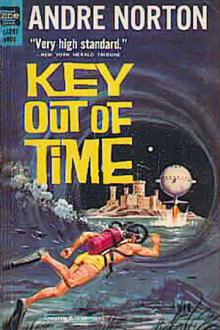Sanders of the River by Edgar Wallace (novels to read in english .TXT) 📗

- Author: Edgar Wallace
Book online «Sanders of the River by Edgar Wallace (novels to read in english .TXT) 📗». Author Edgar Wallace
"Here are the names of men who have put shame upon me," he said; "but principally Olari, chief of the Lukati people."
"I will put a spell upon Olari," said the witch-doctor; "a very bad spell, and upon these men. The charge will be six English pounds."
Sanders paid the money, and "dashed" two bottles of square-face and a piece of proper cloth. Then he went back to headquarters.
One night through the village of Lukati ran a whisper, and the men muttered the news with fearful shivers and backward glances.
"Olari, the chief, is cursed!"
Olari heard the tidings from his women, and came out of his hut into the moonlight, raving horribly.
The next day he sickened, and on the fifth day he was near to dead and suffering terrible pains, as also were six men who helped in the slaying of Carter. That they did not die was no fault of the witch-doctor, who excused his failure on account of the great distance between himself and his subjects.
As for Sanders, he was satisfied, saying that even the pains were cheap at the price, and that it would give him great satisfaction to write "finis" to Olari with his own hand.
A week after this, Abiboo, Sanders' favourite servant, was taken ill. There was no evidence of fever or disease, only the man began to fade as it were.
Making inquiries, Sanders discovered that Abiboo had offended the witch-doctor Kelebi, and that the doctor had sent him the death message.
Sanders took fifty Houssas into the bush and interviewed the witch-doctor.
"I have reason," he said, "for believing you to be a failure as a slayer of men."
"Master," said Kelebi in extenuation, "my magic cannot cross mountains, otherwise Olari and his friends would have died."
"That is as it may be," said Sanders. "I am now concerned with magic nearer at hand, and I must tell you that the day after Abiboo dies I will hang you."
"Father," said Kelebi emphatically, "under those circumstances Abiboo shall live."
Sanders gave him a sovereign, and rode back to headquarters, to find his servant on the high road to recovery.
I give you this fragment of Sanders' history, because it will enable you to grasp the peculiar environment in which Sanders spent the greater part of his life, and because you will appreciate all the better the irony of the situation created by the coming of the Hon. George Tackle.
Sanders was taking breakfast on the verandah of his house. From where he sat he commanded across the flaming beauties of his garden a view of a broad, rolling, oily sea, a golden blaze of light under the hot sun. There was a steamer lying three miles out (only in five fathoms of water at that), and Sanders, through his glasses, recognised her as the Elder Dempster boat that brought the monthly mail. Since there were no letters on his table, and the boat had been "in" for two hours, he gathered that there was no mail for him, and was thankful, for he had outlived the sentimental period of life when letters were pleasant possibilities.
Having no letters, he expected no callers, and the spectacle of the Hon. George being carried in a hammock into his garden was astonishing.
The Hon. George carefully alighted, adjusted his white pith helmet, smoothed the creases from his immaculate ducks, and mounted the steps that led to the stoep.
"How do?" said the visitor. "My name is Tackle—George Tackle." He smiled, as though to say more was an insult to his hearer's intelligence.
Sanders bowed, a little ceremoniously for him. He felt that his visitor expected this.
"I'm out on a commission," the Hon. George went on. "As you've doubtless heard, my governor is the proprietor of the Courier and Echo, and so he thought I'd better go out and see the thing for myself. I've no doubt the whole thing is exaggerated——"
"Hold hard," said Sanders, a light dawning on him. "I gather that you are a sort of correspondent of a newspaper?"
"Exactly."
"That you have come to inquire into——"
"Treatment of natives, and all that," said the Hon. George easily.
"And what is wrong with the treatment of the native?" asked Sanders sweetly.
The hon. gentleman made an indefinite gesture.
"You know—things in newspapers—missionaries," he said rapidly, being somewhat embarrassed by the realisation that the man, if any, responsible for the outrages was standing before him.
"I never read the newspapers," said Sanders, "and——"
"Of course," interrupted the Hon. George eagerly, "we can make it all right as far as you are concerned."
"Oh, thank you!" Sanders' gratitude was a little overdone, but he held out his hand. "Well, I wish you luck—let me know how you get on."
The Hon. George Tackle was frankly nonplussed.
"But excuse me," he said, "where—how——Hang it all, where am I to put up?"
"Here?"
"Yes — dash it, my kit is on shore! I thought——"
"You thought I'd put you up?"
"Well, I did think——"
"That I'd fall on your neck and welcome you?"
"Not exactly, but——"
"Well," said Sanders, carefully folding his napkin, "I'm not so glad to see you as all that."
"I suppose not," said the Hon. George, bridling.
"Because you're a responsibility—I hate extra responsibility. You can pitch your tent just wherever you like—but I cannot offer you the hospitality you desire."
"I shall report this matter to the Administrator," said the Hon. George ominously.
"You may report it to my grandmother's maiden aunt," said Sanders politely.
Half an hour later he saw the Hon. George rejoin the ship that brought him to Isisi Bassam, and chuckled. George would go straight to the Administrator, and would receive a reception beside which a Sahara storm would be zephyrs of Araby.
At the same time Sanders was a little puzzled, and not a little hurt. There never had been a question of atrocities in his district, and he was puzzled to account for the rumours that had brought the "commissioner" on his tour of investigation—could it be a distorted account of Olari's punishment?
"Go quickly to the ship, taking a book to the lord who has just gone from here," was his command to a servant, and proceeded to scribble a note:—
"I am afraid," he wrote, "I was rather rude to you—not understanding what the devil you were driving at. An overwhelming curiosity directs me to invite you to share my bungalow until such time as you are ready to conduct your investigation."
The Hon. George read this with a self-satisfied smirk.
"The way to treat these fellows," he said to the Elder Dempster captain, "is to show 'em you'll stand no nonsense. I thought he'd climb down."
The Elder Dempster captain, who knew Sanders by repute, smiled discreetly, but said nothing. Once more the special correspondent's mountain of baggage was embarked in the surf boat, and the Hon. George waved a farewell to his friends on the steamer.
The Elder Dempster skipper, leaning over the side of his bridge, watched the surf boat rising and falling in the swell.
"There goes a man who's looking for trouble," he said, "and I wouldn't take a half-share of the trouble he's going to find for five hundred of the best. Is that blessed anchor up yet, Mr. Simmons? Half ahead—set her due west, Mr. What's-your-name."
It was something of a triumph for the Hon. George. There were ten uniformed policemen awaiting him on the smooth beach to handle his baggage, and Sanders came down to his garden gate to meet him.
"The fact of it is——" began Sanders awkwardly; but the magnanimous George raised his hand.
"Let bygones," he said, "be bygones."
Sanders was unaccountably annoyed by this generous display. Still more so was he when the correspondent refused to reopen the question of atrocities.
"As your guest," said George solemnly, "I feel that it would be better for all concerned if I pursued an independent investigation. I shall endeavour as far as possible, to put myself in your place, to consider all extenuating circumstances——"
"Oh, have a gin-swizzle!" said Sanders rudely and impatiently; "you make me tired."
"Look here," he said later, "I will only ask you two questions. Where are these atrocities supposed to have taken place?"
"In the district of Lukati," said the Hon. George.
"Olari," thought Sanders. "Who was the victim?" he asked.
"There were several," said the correspondent, and produced his note-book. "You understand that I'd really much rather not discuss the matter with you, but, since you insist," he read, "Efembi of Wastambo."
"Oh!" said Sanders, and his eyebrows rose
"Kabindo of Machembi."
"Oh, lord!" said Sanders.
The Hon. George read six other cases, and with every one a line was wiped from Sanders' forehead.
When the recital was finished the Commissioner said slowly—
"I can make a statement to you which will save you a great deal of unnecessary trouble."
"I would rather you didn't," said George, in his best judicial manner.
"Very good," said Sanders; and went away whistling to order dinner.
Over the meal he put it to the correspondent:
"There are a number of people on this station who are friends of mine. I won't disguise the fact from you—there is O'Neill, in charge of the Houssas; the doctor, Kennedy, the chap in charge of the survey party; and half a dozen more. Would you like to question them?"
"They are friends of yours?"
"Yes, personal friends."
"Then," said the Hon. George, gravely, "perhaps it would be better if I did not see them."
"As you wish," said Sanders.
With an escort of four Houssas, and fifty carriers recruited from the neighbouring villages, the Hon. George departed into the interior, and Sanders saw him off.
"I cannot, of course, guarantee your life," he said, at parting, "and I must warn you that the Government will not be responsible for any injury that comes to you."
"I understand," said the Hon. George knowingly, "but I am not to be deterred. I come from a stock——"
"I dare say," Sanders cut his genealogical reminiscences short; "but the last traveller who was 'chopped' in the bush was a D'Arcy, and his people came over with the Conqueror."
The correspondent took the straight path to Lukati, and at the end of the third day's march came to the village of Mfabo, where lived the great witch-doctor, Kelebi.
George pitched his camp outside the village, and, accompanied by his four Houssas, paid a call upon the chief, which was one of the first mistakes he made, for he should have sent for the chief to call upon him; and if he called upon anybody, he should have made his visit to the witch-doctor, who was a greater man than forty chiefs.
In course of time, however, he found himself squatting on the ground outside the doctor's house, engaged, through the medium of the interpreter he had brought from Sierra Leone, in an animated conversation with the celebrated person.
"Tell him," said George to his interpreter, "that I am a great white chief whose heart bleeds for the native."
"Is he a good man?" asked George.
The witch-doctor, with the recollection of Sanders' threat, said "No!"
"Why?" asked the Hon. George eagerly. "Does he beat the people?"
Not only did he beat the people, explained the witch-doctor with relish, but there were times when he burnt them alive.
"This is a serious charge," said George, wagging his head warningly; nevertheless he wrote with rapidity in his diary:—
"Interviewed Kelebi, respected native doctor, who states:
"'I have lived all my life in this district, and have never known so cruel a man as Sandi (Sanders). I remember once he caused a man to be drowned, the man's name I forget; on another occasion he burned a worthy native alive for refusing to guide him and his Houssas through the forest. I also remember the time when he put a village to the fire, causing the people great suffering.
"'The people of the country groan under his oppressions, for from time to time he comes demanding money and crops, and if he does not receive all that he asks for he flogs the villagers until they cry aloud.'"
(I rather suspect that there is truth in the latter statement, for Sanders finds no little difficulty in collecting the hut-tax, which is the Government's due.)
George shook his head when he finished writing.
"This," he said, "looks very bad."
He shook hands with the witch-doctor, and that aged villain looked surprised, and asked a question in the native tongue.
"You no be fit to dash him somet'ing," said the interpreter.
"Dash him?"
"Give 'um present—bottle gin."
"Certainly not," said George. "He may be satisfied with the knowledge that he is rendering a service to humanity; that he is helping the cause of a down-trodden people."
The witch-doctor said something in reply, which the interpreter very wisely refrained from putting into English.
"How go the investigations?" asked the





Comments (0)